Views: 0
There Is a Correlation Between Acne and Depression

The Essential Info
Acne has negative effects on mental well-being, and clearing up acne makes people feel better. That much is known.
But what about depression? Research shows us that acne and depression often occur together, which means they are “correlated,” but there is not a clear cause-and-effect relationship. This means that acne does not necessarily cause depression, or vice versa.
However, there is evidence that each condition can affect the other: acne may worsen depression, and depression may worsen acne.

The Science
- Acne and Depression are Correlated
- Depression Sometimes Accompanies Acne
- Acne Sometimes Accompanies Depression
- What Does the Research Say About the Relationship Between Acne and Depression?
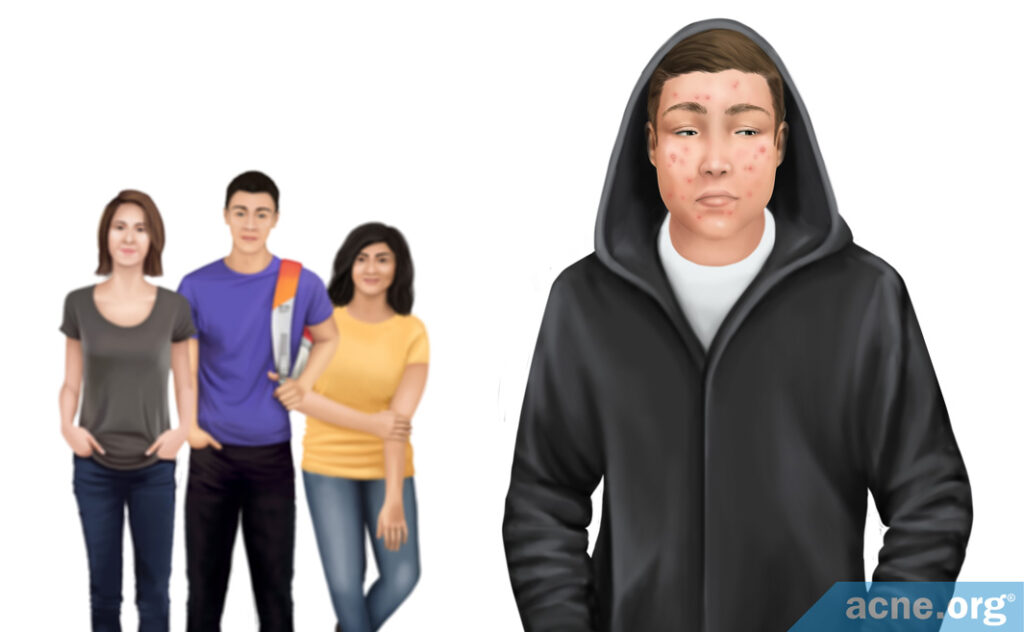
Many people who get acne experience a reduction in self-esteem. Acne can make people feel a range of emotions, including frustration, sadness, and anger. This is well known.
However, in this article we will look at the relationship between, particularly, acne and depression, which is a mood disorder that comes with feelings of sadness and a general loss of interest that persists over time.
Let’s take a deep dive and look at all of the research we have on whether acne causes depression and, conversely, whether depression causes acne.
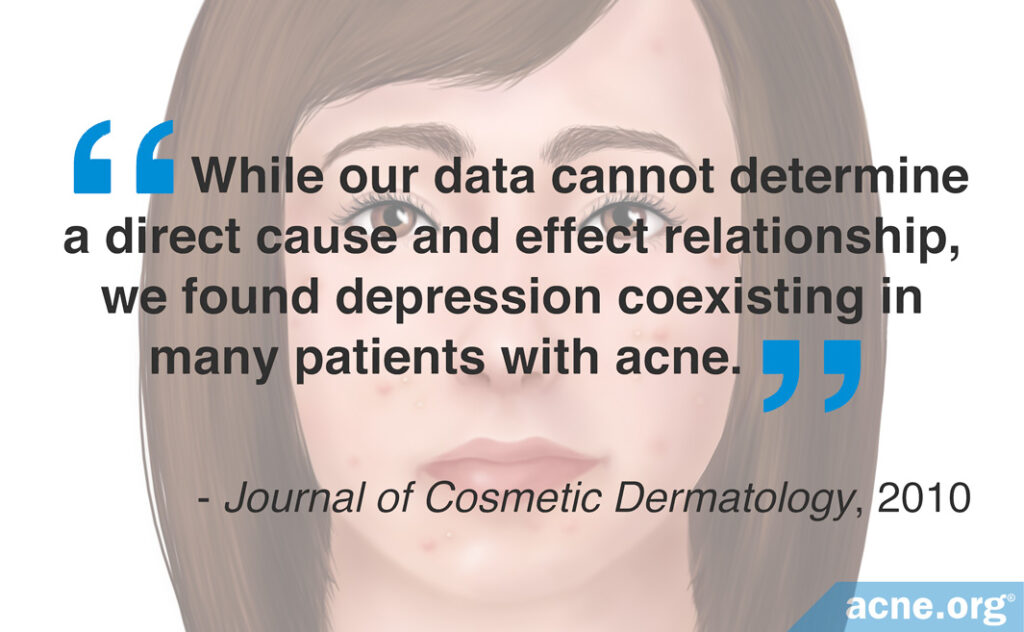
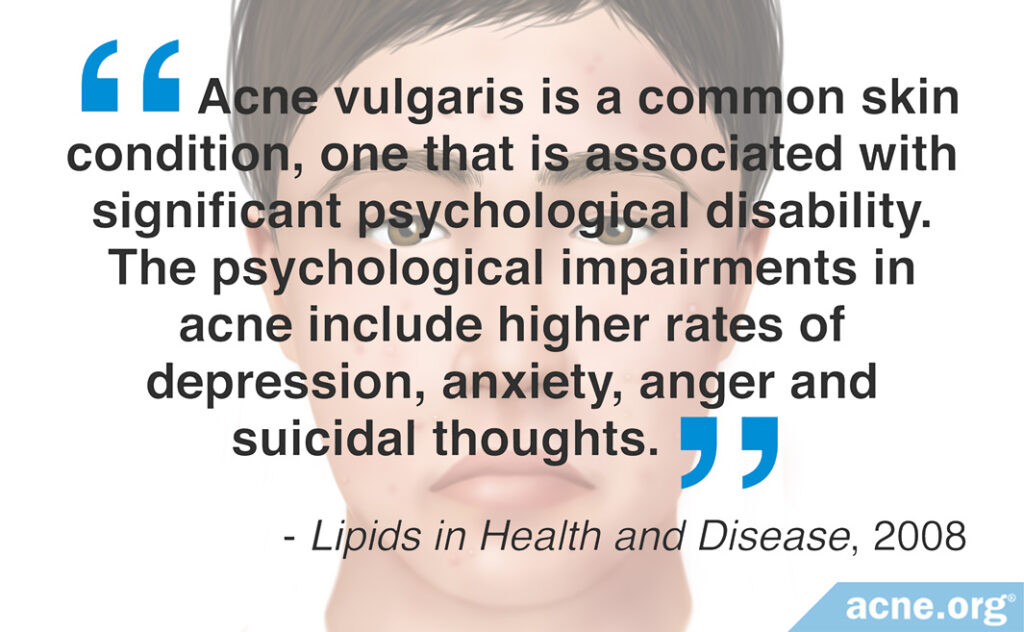
Acne and Depression are Correlated
Acne and depression often occur together, and most research agrees that there is an association between them. However, the available evidence indicates that there is no clear cause-and-effect relationship between these two conditions, meaning that neither condition clearly causes the other.1-6
When two conditions co-occur, but we cannot determine such a relationship, we say that there is a correlation between them. This simply means that there is an association, but that it does not imply causality. As a 2010 article in the Journal of Cosmetic Dermatology stated,

“While our data cannot determine a direct cause and effect relationship, we found depression coexisting in many patients with acne.”4
Depression Sometimes Accompanies Acne
Although acne is a physical disease, it can result in significant psychological distress and is correlated with depression.1,7-14

The best evidence we have for the association between acne and depression comes from a so-called meta-analysis published in the Journal of the American Academy of Dermatology in 2020. This type of study looks at all the research published to date, compiles all the data, and then uses statistical methods to try to answer the question—in this case, whether acne and depression are correlated. After going through 42 studies, the researchers concluded that acne correlates with depression and anxiety—in other words, people with acne have a higher incidence of depression and anxiety than people without acne. Interestingly, the association between acne and depression seems to be stronger for adults than for teens. However, the authors of the meta-analysis noted that the studies they looked at had used different criteria for diagnosing depression, making it difficult to draw deeper conclusions about the connection between acne and depression.7
If you are curious to know more about those 42 studies, expand the section below to take a look at excerpts from some of them.
Expand to read details of studies
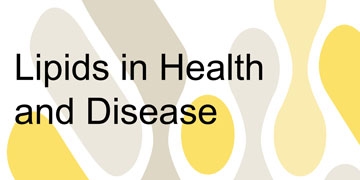
A 2008 article in the journal, Lipids in Health and Disease, noted,”Acne vulgaris is a common skin condition, one that is associated with significant psychological disability. The psychological impairments in acne include higher rates of depression, anxiety, anger and suicidal thoughts.”1

Similarly, the Canadian Dermatology Association stated that acne is correlated with multiple psychological effects, including depression. According to their website, “A Canadian study of nearly 500 patients with acne published in the British Journal of Dermatology found that even having mild acne can bring on feelings of low self-esteem, depression and suicidal thoughts.”8
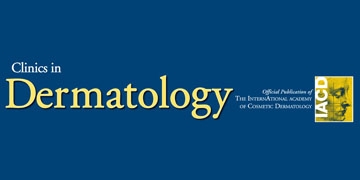
A 2013 article in Clinics in Dermatology noted, “The literature consistently points to an increased suicide risk in patients with…acne, with higher risk in patients in whom the [acne] is associated with clinically significant emotional distress, changes in body image, difficulties in close relationships, and impaired daily activities.”9

A study published in the journal Acta Dermato-Venereologica in 2020 set out to determine whether anxiety and depression are more common in people with acne compared to people without acne. The researchers looked at 213 people with acne and 213 people without acne across 13 European countries. The scientists interviewed each person and used a scale to assign him or her a score for anxiety and a score for depression. The scientists found that people with acne tended to score higher on both anxiety and depression. In addition, people with acne were slightly more likely to have suicidal thoughts.10

A similar but smaller study was published in the Journal of Ayub Medical College, Abbottabad, in 2019. The researchers looked for the presence of depression in 74 acne patients who visited a dermatology clinic in Pakistan. They concluded, “Acne is associated with depression and deterioration in [quality of life], which are more pronounced in teens and women.”11

A study published in the journal Advances in Dermatology and Allergology in 2019 compared levels of depression in 61 people with acne and 61 people without acne. The researchers wrote, “This study shows that patients with acne have higher levels of depression, anxiety, social anxiety, [and] self-reported stress” compared to people without acne.12
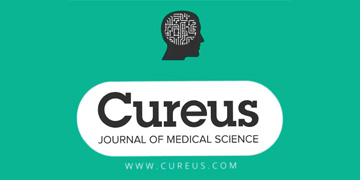
Most recently, a study published in the journal Cureus in 2022 assessed 100 people with acne and 100 people without acne using multiple scoring systems for depression and anxiety. The researchers found that the people with acne scored higher on depression and anxiety than the people without acne, regardless of which scoring system was used.13
Acne Sometimes Accompanies Depression
On the flip side of the coin, people who are depressed often have acne.
Nobody likes having acne. However, depression can worsen these negative feelings, as was indicated by two separate studies.2,6
Expand to read details of studies
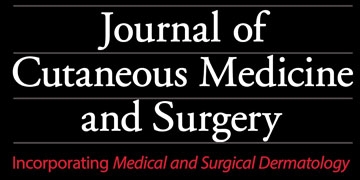
A 2004 article in the Journal of Cutaneous Medicine and Surgery stated,”Although depression and anxiety do not cause acne, the quality-of-life impact of acne may be magnified in those who are either anxious or depressed.”6 In other words, pre-existing depression may worsen the emotional distress associated with acne.
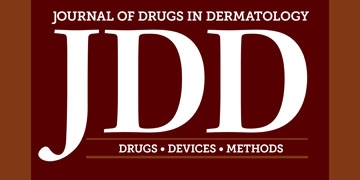
A 2010 article in the Journal of Drugs in Dermatology noted, “The emotional impact of acne is influenced by numerous factors including…psychosocial factors [such as depression].”2
People often report that stress, including depression, triggers acne flares. If depression caused the acne flare, then we would expect that treating the depression would also treat the acne. However, this is not the case. In fact, some acne patients complain that their acne becomes worse when being treated for depression, and acne is listed as a possible side effect of some antidepressants, including Zoloft® and Wellbutrin®.14
Therefore, from the research we currently have available, even though depression can worsen the psychological impact of acne, it is not known to cause acne.
What Does the Research Say About the Relationship Between Acne and Depression?
The majority of the research indicates a correlation between acne and depression, though different studies reached different conclusions about the nature of that correlation.
Some studies indicate that people with acne report more depression:15-17
Expand to read details of studies

A 2004 review in Skin Therapy Letter examined the association between acne and psychological symptoms in adolescents throughout the world and combined the results of multiple studies into a single analysis. This review found that 18% of study participants with acne reported depression, and 6% reported suicidal thoughts.15

A 2010 study in The Journal of Dermatology investigated the link between acne and depression in adolescent students. This study found that students with acne reported significantly more depression than those without acne.16
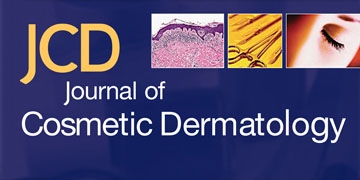
A 2010 study in the Journal of Cosmetic Dermatology compared the prevalence of depression in acne patients in the U.S. state of North Carolina with that of the state’s general population. This study found that depression was about twice as prevalent in acne patients as in the general population.17
Some studies indicate that treating acne appears to improve the depression:18-21
Expand to read details of studies

A 1990 study in the International Journal of Dermatology evaluated psychiatric health in patients with mild to moderate acne. This study found that not only is acne associated with depression, but treating it appears to improve the depression. The authors concluded, “The improvement of acne appears to be associated with decreased depression.”18

A 1997 study in the British Journal of Dermatology also found that acne treatment significantly improved mental health in 79 patients. The researchers wrote, “The study showed that [psychological] disability caused by acne can be largely reversed by effective treatment.”19

A study published in the Journal of the European Academy of Dermatology and Venereology in 2007 looked at the ability of a topical acne treatment to improve emotional well-being in 2,221 people with acne. The researchers found that improving acne also improved patients’ emotional well-being. However, each patient’s emotional health depended less on how much the acne objectively improved and more on how much improvement the patient perceived. In other words, those who felt their acne had decreased significantly, even if that wasn’t actually the case, also experienced the greatest improvement in emotional well-being.20

A 2011 literature review in Dermatology Online Journal assessed the psychological effects of acne in teenagers. This study found that depression occurred more often in teens with acne and that treating it appeared to improve the depression. The authors concluded, “Depression and other psychological disorders are more prevalent in acne patients and acne treatment may improve symptoms of these disorders.”21
One study indicates that people with depression are more likely to have acne:
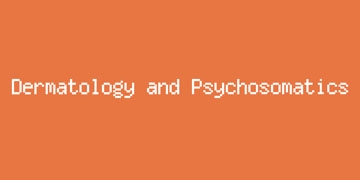
A 2002 study in Dermatology and Psychosomatics found that participants who reported depressive symptoms are more likely to develop acne.22
One study indicates that more severe acne correlates with more severe depression:

A 2011 study in the Journal of Investigative Dermatology evaluated the relationship between acne severity and suicidal thoughts in teenagers. This study found that teens with more acne reported suicidal thoughts about twice as often as teens with little or no acne.23
One study indicates that the severity of acne is not related to the severity of depression:

A 2004 study in the Journal of the European Academy of Dermatology and Venereology found that depression was significantly more common in acne patients than in those without acne but that the presence of depression was unrelated to the severity of acne. In other words, the presence of acne raised the risk of depression, but whether the acne was mild or severe made no difference.24
One study indicates a reciprocal (two-way) relationship between acne and depression:

A 2015 study in Cell Biochemistry and Biophysics investigated the link between acne and psychological well-being. This study found a reciprocal relationship between acne and psychological distress: greater anxiety or depression was associated with more acne, and acne was associated with greater levels of anxiety or depression.25
And while most studies found a correlation between acne and depression, a few studies observed the opposite:26-30
Expand to read details of studies

A 2001 study in Dermatology assessed the effect of acne treatment on psychological issues, such as depression. This study found that acne treatment and the resulting reduction in acne did not improve emotional health.26

A 2008 study in the Journal of the European Academy of Dermatology and Venereology investigated the relationship between acne, depressive symptoms, and suicidal thoughts. This study found no correlation between acne and depression or suicidal thoughts.27

A 2010 study in the Indian Journal of Dermatology found no significant difference in the prevalence of depression in acne patients when compared to a control group.28

A 2015 study in the Journal of Investigative Dermatology found that acne patients were not at increased risk for depression or suicidal thoughts.29
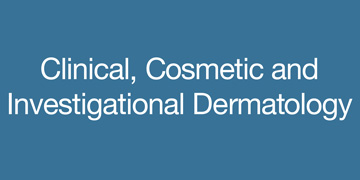
A study published in the journal Clinical, Cosmetic and Investigational Dermatology in 2021 looked at levels of depression and anxiety in people with and without acne. The researchers compared 296 people with acne to 296 people without acne. The people in both groups were between the ages of 12 and 60 years old. The researchers found that people with acne were more likely to suffer from anxiety but not depression. In other words, they found that rates of depression were similar in people with acne and people without acne, but rates of anxiety were higher in people with acne.30
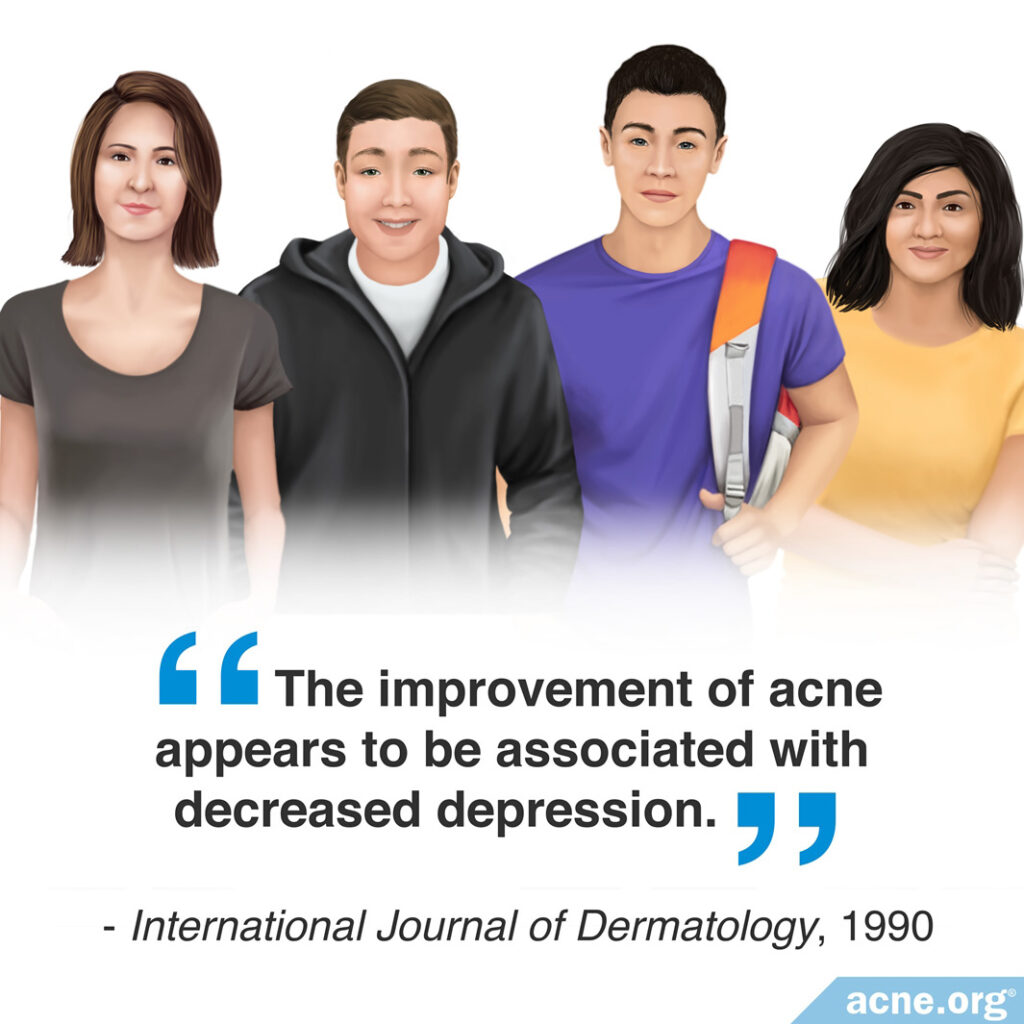
A word of caution: We cannot draw conclusions from these studies. Taken all together, the research to date indicates not only that there is a correlation between acne and depression but that this relationship is reciprocal. This means that acne can affect depression, and depression can impact acne.
However, it is important to note that the majority of studies conducted thus far concerning the relationship between acne and depression pose significant problems that limit our ability to draw conclusions.
Most studies used minimally rigorous study-designs, such as case reports and case-control surveys, rather than rigorous designs, such as randomized controlled trials.
The data in case reports and in case-control surveys can be suspect, partly because:
- Most studies relied on self-reported data, such as surveys and questionnaires, rather than on a professional’s diagnosis to determine the presence and severity of both acne and depression.
- Many studies included only a small number of participants, did not include control groups to compare with the acne groups, and did not take into account other factors, such as acne severity and personal or family history of depression.4
Because of these methodological problems, we cannot draw conclusions based on the existing research about the nature of the relationship between acne and depression. We can conclude only that a correlation between the two conditions appears to exist.
However, on a real-world level, clearing up acne is helpful to one’s mental state, and we don’t need studies to tell us that.
References
- Rubin, M. G., Kim, K. & Logan, A. C. Acne vulgaris, mental health and omega-3 fatty acids: a report of cases. Lipids Health Dis. 7, 36 (2008). https://www.ncbi.nlm.nih.gov/pubmed/18851733
- Fried, R. & Friedman, A. Psychosocial sequelae related to acne: looking beyond the physical. J. Drugs Dermatol. 9, s50 – 2 (2010). https://www.ncbi.nlm.nih.gov/pubmed/20518360
- Gordon-Elliott, J. S. & Muskin, P. R. Managing the patient with psychiatric issues in dermatologic practice. Clin. Dermatol. 31, 3 – 10 (2013). https://www.ncbi.nlm.nih.gov/pubmed/23245968
- Uhlenhake, E., Yentzer, B. A. & Feldman, S. R. Acne vulgaris and depression: a retrospective examination. J. Cosmet. Dermatol. 9, 59 – 63 (2010). https://www.ncbi.nlm.nih.gov/pubmed/20367674
- Kilkenny, M. et al. Acne in Victorian adolescents: associations with age, gender, puberty and psychiatric symptoms. J. Paediatr. Child Health 33, 430 – 3 (1997). https://www.ncbi.nlm.nih.gov/pubmed/9401889
- Thomas, D. R. Psychosocial effects of acne. J. Cutan. Med. Surg. 8 Suppl 4, 3 – 5 (2004). https://www.ncbi.nlm.nih.gov/pubmed/15778823
- Samuels, D. V., Rosenthal, R., Lin, R., Chaudhari, S. & Natsuaki, M. N. Acne vulgaris and risk of depression and anxiety: A meta-analytic review. J. Am. Acad. Dermatol. 83, 532-541 (2020). https://pubmed.ncbi.nlm.nih.gov/32088269/
- Canadian Dermatology Association. Psychological Effects of Acne https://dermatology.ca/public-patients/skin/acne/
- Picardi, A., Lega, I. & Tarolla, E. Suicide risk in skin disorders. Clin. Dermatol. 31, 47 – 56 (2013). https://www.ncbi.nlm.nih.gov/pubmed/23245973
- Altunay, I. K., et al. Psychosocial aspects of adult acne: Data from 13 European countries. Acta Derm Venereol. 100, adv00051 (2020). https://www.ncbi.nlm.nih.gov/pubmed/31993670
- Haroon, M. Z., Alam, A., Ullah, I., Ali, R., Taimur, M. F. & Raza, K. Quality Of life and depression among young patients suffering from acne. J..Ayub. Med. Coll. Abbottabad. 31, 436-440 (2019). https://www.ncbi.nlm.nih.gov/pubmed/31535523
- Sereflican, B., Tuman, T. C., Tuman, B. A., Parlak, A. Type D personality, anxiety sensitivity, social anxiety, and disability in patients with acne: a cross-sectional controlled study. Adv. Dermatol. Alergol. 36, 51-57 (2019). https://www.ncbi.nlm.nih.gov/pmc/articles/PMC6409878/
- Öncü, I., Gürel, G. & Akkoyun, A. The relationship of acne with somatosensory amplification, health anxiety, and depression levels. Cureus. 14, e32314 (2022). https://pubmed.ncbi.nlm.nih.gov/36628010/
- Lewis, C. A. Enteroimmunology: A Guide to the Prevention and Treatment of Chronic Inflammatory Disease. (CreateSpace Independent Publishing Platform, 2014). https://www.amazon.com/Enteroimmunology-Prevention-Treatment-Chronic-Inflammatory/dp/1502706946
- Tan, J. K. Psychosocial impact of acne vulgaris: evaluating the evidence. Skin Therapy Lett. 9, 1 – 3, 9 (2004). https://www.ncbi.nlm.nih.gov/pubmed/15334275
- Kubota, Y. et al. Community-based epidemiological study of psychosocial effects of acne in Japanese adolescents. J. Dermatol. 37, 617 – 622 (2010). https://onlinelibrary.wiley.com/doi/abs/10.1111/j.1346-8138.2010.00855.x
- Uhlenhake, E., Yentzer, B. A. & Feldman, S. R. Acne vulgaris and depression: a retrospective examination. J. Cosmet. Dermatol. 9, 59 – 63 (2010). https://www.ncbi.nlm.nih.gov/pubmed/20367674
- Gupta, M. A., Gupta, A. K., Schork, N. J., Ellis, C. N. & Voorhees, J. J. Psychiatric aspects of the treatment of mild to moderate facial acne. Some preliminary observations. Int. J. Dermatol. 29, 719 – 721 (1990). https://europepmc.org/abstract/med/2148562
- Newton, J. N., Mallon, E., Klassen, A., Ryan, T.J. & Finlay, A.Y. The effectiveness of acne treatment: an assessment by patients of the outcome of therapy. Br. J. Dermatol.137, 563-537 (1997). https://www.ncbi.nlm.nih.gov/pubmed/9390332
- Jones-Caballero, M., Chren, M. M., Soler, B., Pedrosa, E. & Peñas, P. F. Quality of life in mild to moderate acne: relationship to clinical severity and factors influencing change with treatment. J. Eur. Acad. Dermatol. Venereol. 21, 219-226 (2007). https://www.ncbi.nlm.nih.gov/pubmed/17243958
- Dunn, L. K., O’Neill, J. L. & Feldman, S. R. Acne in adolescents: quality of life, self-esteem, mood, and psychological disorders. Dermatol. Online J 17, 1 (2011). https://www.ncbi.nlm.nih.gov/pubmed/21272492
- Polenghi, M. M., Zizak, S. & Molinari, E. Emotions and Acne. Dermatol. Psychosom. 1, 20 – 25 (2002). https://www.karger.com/Article/Abstract/51359
- Halvorsen, J. A. et al. Suicidal ideation, mental health problems, and social impairment are increased in adolescents with acne: a population-based study. J. Invest. Dermatol. 131, 363 – 370 (2011). https://www.ncbi.nlm.nih.gov/pubmed/20844551
- Yazici, K. et al. Disease-specific quality of life is associated with anxiety and depression in patients with acne. J. Eur. Acad. Dermatol. Venereol. 18, 435 – 439 (2004). https://www.ncbi.nlm.nih.gov/pubmed/15196157
- Wen, L., Jiang, G., Zhang, X., Lai, R. & Wen, X. Relationship between acne and psychological burden evaluated by ASLEC and HADS surveys in high school and college students from central China. Cell Biochem. Biophys. 71, 1083 – 1088 (2015). https://www.ncbi.nlm.nih.gov/pubmed/25331674
- Mulder, M. M. et al. Psychosocial impact of acne vulgaris. evaluation of the relation between a change in clinical acne severity and psychosocial state. Dermatology 203, 124 – 130 (2001). https://www.ncbi.nlm.nih.gov/pubmed/11586010
- Rehn, L. M., Meririnne, E., Hook-Nikanne, J., Isometsa, E. & Henriksson, M. Depressive symptoms, suicidal ideation and acne: a study of male Finnish conscripts. J. Eur. Acad. Dermatol. Venereol. 22, 561 – 567 (2008). https://www.ncbi.nlm.nih.gov/pubmed/19522777
- Golchai, J. et al. Comparison of anxiety and depression in patients with acne vulgaris and healthy individuals. Indian J. Dermatol. 55, 352 – 354 (2010). https://www.ncbi.nlm.nih.gov/pubmed/21430888
- Dalgard, F. J. et al. The psychological burden of skin diseases: a cross-sectional multicenter study among dermatological out-patients in 13 European countries. J. Invest. Dermatol. 135, 984 – 991 (2015). https://www.ncbi.nlm.nih.gov/pubmed/25521458
- Molla, A., Alrizqi, H., Alharbi, E., Alsubhi, A., Alrizqi, S. &, Shahada, O. Assessment of anxiety and depression in patients with acne vulgaris in Medina: A case-control study. Clin. Cosmet. Investig. Dermatol. 6, 999-1007 (2021). https://pubmed.ncbi.nlm.nih.gov/34385831/
The post How Are Acne and Depression Related? appeared first on Acne.org.

